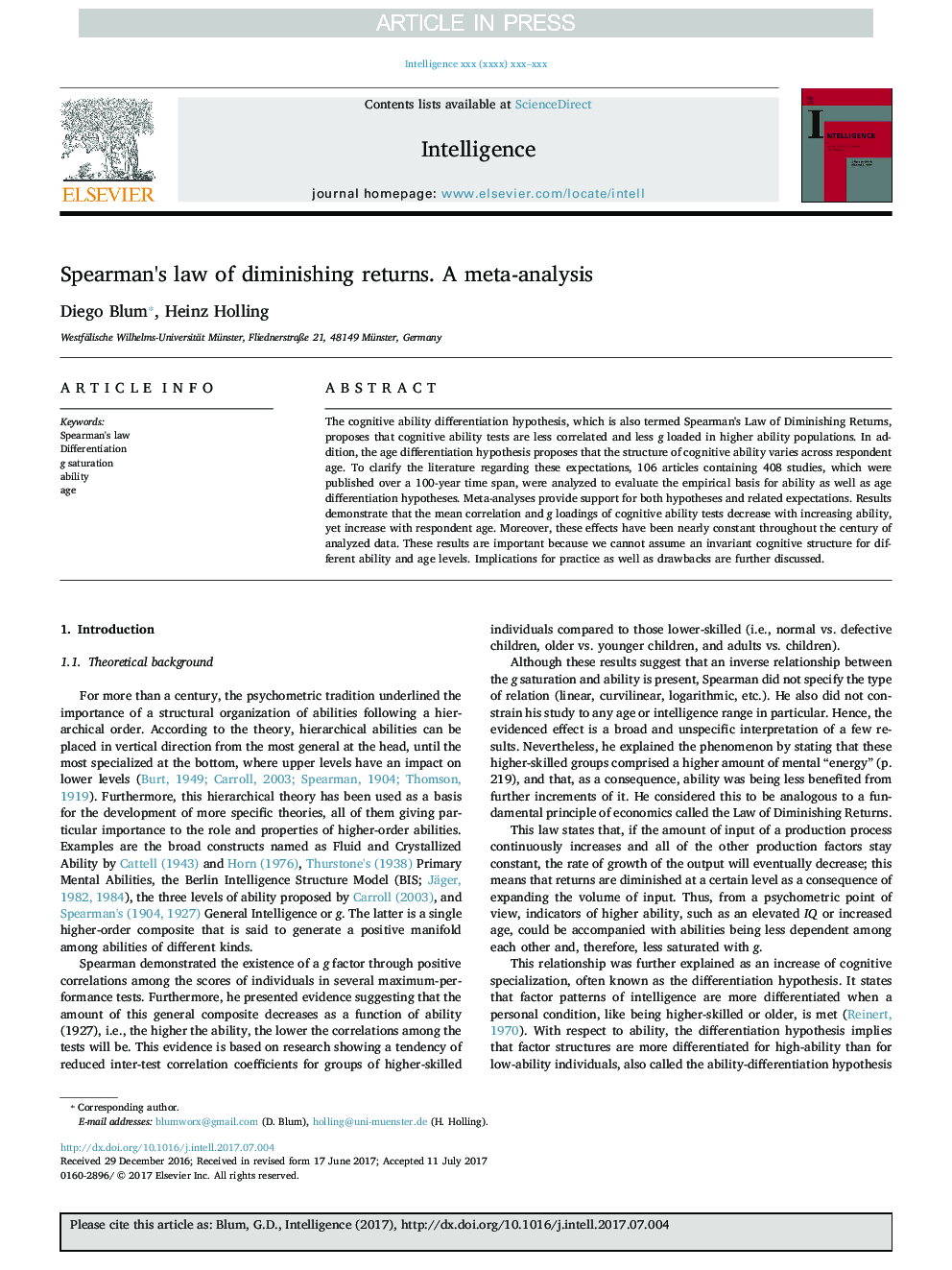| Article ID | Journal | Published Year | Pages | File Type |
|---|---|---|---|---|
| 7293060 | Intelligence | 2017 | 7 Pages |
Abstract
The cognitive ability differentiation hypothesis, which is also termed Spearman's Law of Diminishing Returns, proposes that cognitive ability tests are less correlated and less g loaded in higher ability populations. In addition, the age differentiation hypothesis proposes that the structure of cognitive ability varies across respondent age. To clarify the literature regarding these expectations, 106 articles containing 408 studies, which were published over a 100-year time span, were analyzed to evaluate the empirical basis for ability as well as age differentiation hypotheses. Meta-analyses provide support for both hypotheses and related expectations. Results demonstrate that the mean correlation and g loadings of cognitive ability tests decrease with increasing ability, yet increase with respondent age. Moreover, these effects have been nearly constant throughout the century of analyzed data. These results are important because we cannot assume an invariant cognitive structure for different ability and age levels. Implications for practice as well as drawbacks are further discussed.
Keywords
Related Topics
Social Sciences and Humanities
Psychology
Experimental and Cognitive Psychology
Authors
Blum Diego, Holling Heinz,
